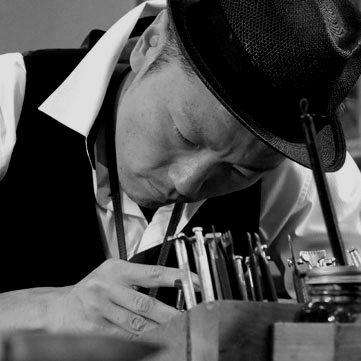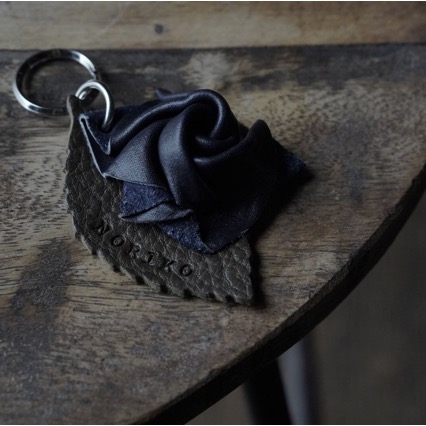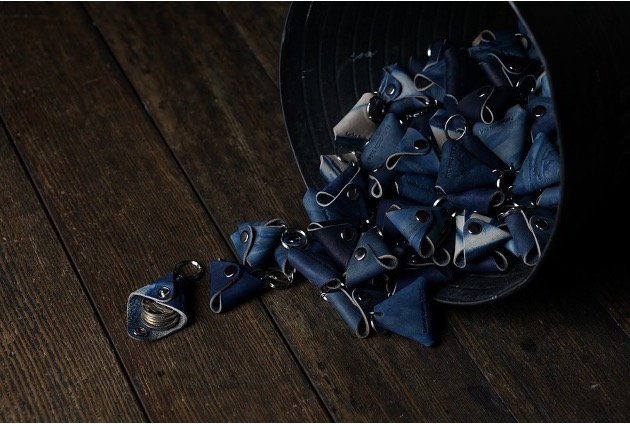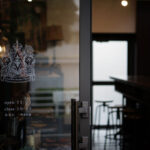Promoting the Charm of Fukuyama to the World! Making Fukuyama a Tourist Destination!
- Tanning and Fur Product Manufacturing
- town planning
- Unique Products & Services
- Connecting with People
- Leather Artisan
Hiroshima
Third Co., Ltd. creates the leather brand 'Fukuyama Leather,' filled with the charm and spirit of Fukuyama City in Hiroshima Prefecture. Utilizing Fukuyama's history, traditional industries, and beautiful nature, the artisan studio 'Third' engages in product development and aims to increase Fukuyama's recognition by making the studio itself a tourist attraction. We speak with Susumu Mishima, a leather craftsman with 30 years of experience and the mastermind behind this endeavor, to hear his thoughts.

PROTAGONIST
Susumu MishimaCEO
Driven by the desire to value communication with customers, Mr. Mishima established his own company, Third, after separating from his father’s business. His company manufactures and sells leather goods such as wallets, bags, business card holders, belts, and key cases. In an era overflowing with goods, they place value on creating ‘one-of-a-kind items,’ and their principle is to never say ‘it can’t be done’ in response to customer requests.
Turning Our Company into a New Tourist Attraction
One day, a famous travel guide caught my eye while passing by a bookstore. Unexpectedly, I picked it up and looked inside, only to find that there was no section introducing Fukuyama City. Despite reading through it multiple times, I couldn’t find any mention of Fukuyama, and I couldn’t hide my frustration.
Witnessing the current situation firsthand, Mr. Mishima’s passion overflowed. ‘I want more people to know about the charm of Fukuyama City,’ ‘I want to make Fukuyama a tourist destination and ”Third” a tourist attraction.’
His passion turned into a goal, and he came up with the idea of creating specialty products to make Fukuyama a tourist destination.
He considered collaborating with BINGO-GASURI, a traditional textile industry of Fukuyama known for its unique indigo dyeing pattern. After discussing with his friend who specializes in indigo dyeing, he received enthusiastic support. This led to the creation of ‘Fukuyama Leather’ through joint development.
They quickly displayed the new products in the store and expanded sales through online shopping, allowing purchases from their website. Mr. Mishima expressed, ‘”I want to make sure that our content and presentation are designed to make people want to come all the way from Tokyo, rather than opening a store in Tokyo.”
The Meaning of Blue Roses and Japan Blue
With the birth of the specialty product ‘Fukuyama Leather,’ product development also began. The indigo color of indigo dyeing, a blue color with a slight green tint known as Japan Blue, opened up possibilities for appealing to an international audience and could be utilized in any prefecture in Japan. By leveraging indigo dyeing, Fukuyama Leather has expanded in various ways, including commemorative items for corporate anniversaries, souvenirs for various meetings, and keepsakes for political party conventions.
And the flower most loved by the citizens of Fukuyama is the rose. The flower language of red roses is “love.” It began with citizens planting a thousand rose seedlings out of a desire to bring vitality to the delicate and devastated city and restore peace to people’s hearts.
On the other hand, the flower language of blue roses is “impossible.” Although creating blue roses through breeding was considered difficult, researchers at Suntory Holdings succeeded in creating blue roses by incorporating the blue pigment from pansies. This achievement changed the flower language from “impossible” to “miracle.” Noticing this, Mr. Mishima infused his desire to turn Fukuyama, once considered impossible to transform into a tourist destination, into the blue rose and commercialized a blue rose keychain called ‘Charmant.’

Furthermore, he has received offers from companies related to clothing and confectionery, indicating potential for future development. Customers who pick up these products may find the appeal in the fact that no two items are the same, each having its unique character.

I want to make being a leather craftsman an aspirational profession.
The Japanese leather industry is said to be a declining industry because both high-end and low-end brands are too strong. Both come from overseas, and they have secured a certain number of fans due to their superior materials, technology, and design. Even if Japanese leather craftsmen create reasonably good products, they cannot differentiate themselves from other companies and are pushed into price competition. Even if domestic brands produce leather goods, these products gradually become less popular. The industry itself is aging, and the lack of successors is causing the industry to shrink.
The manufacturing industry faces the challenge that it is not a “desired profession” for young people. However, when Mr. Mishima speaks about the appeal of manufacturing, he shines brightly.v
INFORMATION

Leather studio Third
This is a leather craftsmen's shop that faces each customer with the mottoes "Never say impossible," "We will definitely impress you," and "Always stylish." We are dedicated to the materials and consider how the product will be perceived when carried. We have continually pursued creating not just well-designed but truly user-friendly leather products. It is because we are craftsmen who understand our customers' desires that products filled with passion are born. We are "Leather Concierges" who connect our customers' desires with leather. Our mission at Third is to convey the joy of leather and provide new value to your lifestyle.
- Founded in
- 2011
- No. of employees
- 5
- Website
- https://leatherstudiothird.com/
- Writer:
- GOOD JOB STORY 編集部



